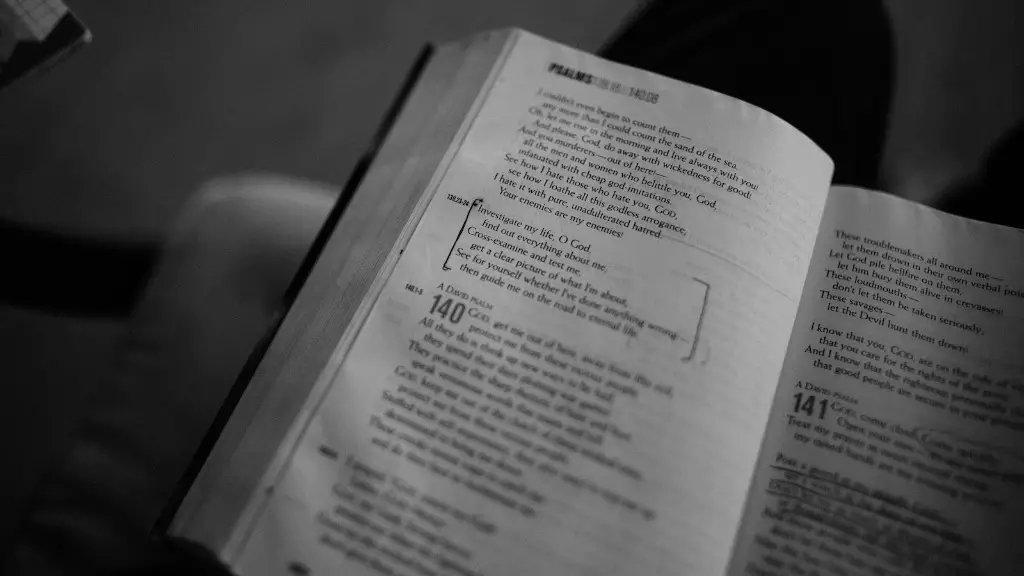Lxx is an abbreviation for the Greek translation of the Hebrew Bible. This translation is also known as theSeptuagint. It is called this because it is traditionally believed to have been done by seventy (or seventy-two) scholars working in Alexandria, Egypt.
LXX is an abbreviation commonly used to refer to the Septuagint, a Greek translation of the Hebrew Bible.
What does LXX mean in the Bible?
The Septuagint is a Greek translation of the Hebrew Bible, and is abbreviated as LXX. It is the earliest extant Greek translation of the Old Testament, and was presumably made for the Jewish community in Egypt when Greek was the common language throughout the region.
The Septuagint, as the translation of the Hebrew Bible, was a landmark of antiquity. It is the first translation in the history of the Bible. It also, for all its oddities of language and translation style, became the central literary work of Hellenistic Judaism and early Christianity.
Is the Septuagint different from the Bible
The Septuagint is a translation of the Hebrew Bible into Greek. It is commonly treated as a bad translation in some places, but the discoveries in the Judean Desert have boosted interest in the Septuagint. Up to that time, the only Hebrew Bible texts that were studied were the medieval editions.
The LXX, or the Septuagint, is a Greek translation of the Hebrew Bible. The earliest portion of the LXX, the translation of the Pentateuch, dates from the first third of the 3rd century BCE. This translation was produced in Alexandria, Egypt.
The LXX is an important source for our understanding of the Hebrew Bible, as it provides us with a different perspective on the text. It is also an important source for understanding the development of early Christianity, as it was the Bible used by many early Christians.
Did Jesus use the Septuagint Bible?
Jesus would have been familiar with a popular Greek translation of Hebrew Scripture commonly known as the Septuagint, which had already been around for a long time, as well as other Greek and even some Aramaic translations.
The name of God in Aramaic is יהו (“YHW”), which is related to the Hebrew name יהוה (YHWH). In the Septuagint, the Greek translation of the Hebrew Bible, the name of God was written as Κύριος (Kúrios, “Lord”). This became the standard way of writing the name of God in the Christian era.
Why was the Septuagint removed from the Bible?
Several factors led most Jews to abandon the Septuagint around the second century CE. The earliest gentile Christians used the Septuagint out of necessity, since it was the only Greek version of the Bible and most (if not all) of these early non-Jewish Christians could not read Hebrew.
In the Septuagint, there are approximately 90 instances where a quote is given literally. In around 80 further instances, the quote is altered in some way. For example, at Matthew 21:42 Jesus says “Did ye never read in the scriptures that the stone which the builders refused is become the head stone of the corner?”, a reference to Psalm 118:22.
What was the miracle of the Septuagint
The Translation of the Seventy, also known as the Septuagint, is a miracle of translation. Seventy translators working independently finished their work in seventy days and produced seventy copies of exactly the same text. The outcome was immediately acknowledged as the authoritative version of Moses’ law.
The difference between the canon of the Roman Catholic and Eastern Orthodox Churches and the Protestant churches lies in the inclusion of the Septuagint. The Septuagint is a Greek translation of the Hebrew Bible that was used by Jews in the early centuries of the Common Era. The Roman Catholic and Eastern Orthodox Churches include most of the books that are in the Septuagint in their canons, while Protestant churches usually do not. This difference is due to the different ways that these churches interpret the Bible and the history of early Christianity.
Is the KJV based on the Septuagint?
The New Testament was translated from Greek, the Old Testament from Hebrew and Aramaic, and the Apocrypha from Greek and Latin. The King James Version was based on the Masoretic Text, the Septuagint, and the Latin Vulgate. The New Testament Textus Receptus was used as the basis for the New Testament, while the Septuagint and Latin Vulgate were used as the basis for the Apocrypha.
2000 is a lot of manuscripts! Wow.
What language did Jesus speak
Aramaic is a Semitic language that was the everyday vernacular in ancient times in the region of Syria and Mesopotamia. Aramaic Most religious scholars and historians agree with Pope Francis that the historical Jesus principally spoke a Galilean dialect of Aramaic Through trade, invasions and conquest, the Aramaic language had spread far afield by the 7th century BC, and would become the lingua franca in much of the Middle East.
The Aramaic alphabet, which was derived from the Phoenician alphabet, was used to write the Aramaic language. Aramaic was the first alphabet used to write a Semitic language. By the 1st century AD, Aramaic had become the dominant script in the Middle East. Aramaic remained the primary written language of the Middle East until the 8th century AD, when it was replaced by Arabic.
Aramaic is still spoken by some people in the Middle East today.
Paul quotes from the Old Testament frequently, but not always from the Septuagint (or possibly another Greek translation). Sometimes he (or perhaps someone else before him) clearly translates his text directly from the Hebrew. This shows that Paul was well-versed in both the Old Testament and Hebrew, and that he wasn’t afraid to use sources other than the Septuagint when it suited his purposes.
Is the Book of Enoch in the Septuagint?
The Book of Enoch is a fascinating but mysterious text that was excluded from both the Hebrew Tanakh and the Greek translation of the Hebrew Bible, the Septuagint. It is not considered canon by either Jewish or early Christian readers, but its influence can be seen in later apocalyptic literature and in the New Testament.
A Christian Bible is a collection of sacred texts or scriptures that Christians consider to be a product of divine inspiration and a record of the relationship between God and humans. The Bible is widely considered to be the best-known and most influential book in human history. Christians believe that the Bible is the word of God, and that it is a reliable record of his will and his relationship with humanity. The Bible is divided into two main sections, the Old Testament and the New Testament. The Old Testament contains the books of the Jewish Bible, while the New Testament contains the books of the Christian Bible.
Is Psalms in the Septuagint
The Septuagint is a translation of the Hebrew Bible into Greek. The name Septuagint derives from the Latin versio septuaginta interpretum, “translation of the seventy interpreters”, referring to the seventy Jewish scholars who translated the Hebrew Scriptures into Koine Greek in the 3rd century BCE.
The seventy-two-fold name is derived from three verses in Exodus 14:19–21. Each of the verses contains 72 letters. When the verses are read boustrophedonically, 72 names, three letter each, are produced (the niqqud of the source verses is disregarded in respect to pronunciation).
Warp Up
The LXX is the oldest and most important translation of the Hebrew Bible. It was made in the 3rd to 1st centuries BCE by Greek-speaking Jews.
LXX is the name given to the Greek translation of the Hebrew Scriptures. This translation was used by early Christians and is still used by some today. It is an important part of the Christian Bible and has been used to help people understand the words of the Bible for centuries.





